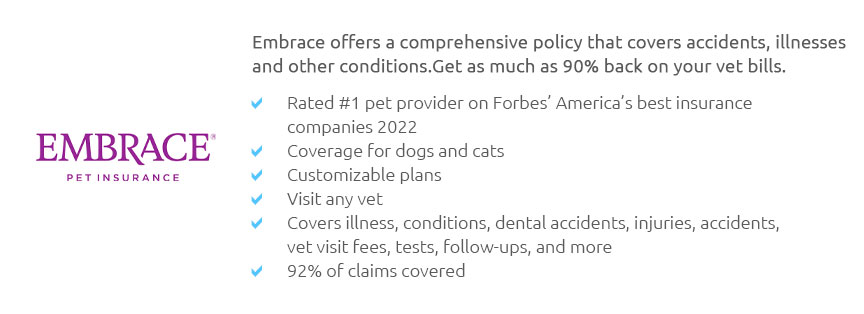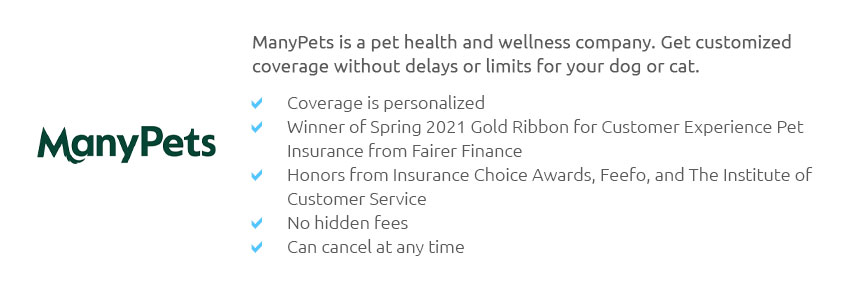 |
 |
 |
 |
 |
 |
|
 |
|
 |
|
 |
|
 |
|
 |
 |
 |
 |
 |
 |
 |
 |
Understanding Pet Life Insurance Policies: A Comprehensive GuideIn today's world, where our furry companions hold cherished spots in our families, considering a pet life insurance policy has become more than just a trend-it's a thoughtful decision for many pet owners. As we increasingly humanize our pets, the concept of ensuring their well-being, even financially, has gained traction. But what exactly is pet life insurance, and why should you consider it? Pet life insurance, unlike traditional pet health insurance, focuses on providing a financial safety net in the unfortunate event of your pet's passing. While it might initially seem like an extravagant expense, it serves a practical purpose for those who want to manage the costs associated with their pet's end-of-life care, burial, or cremation services. The policy may also cover costs related to the loss of a pet in an accident or theft, offering a small sense of relief during such a distressing time. The benefits of a pet life insurance policy are manifold. Primarily, it alleviates the sudden financial burden that can accompany the loss of a beloved pet. Additionally, it reflects the growing recognition of pets as integral family members whose passing deserves the same dignity and respect as any other family member. For those heavily invested emotionally and financially in their pets, such a policy offers peace of mind, knowing there’s a plan in place should the worst happen. When navigating the options available, it’s crucial to understand the varied structures of these policies. Some offer comprehensive packages that include accident coverage, illness protection, and even theft or loss. Others might focus solely on posthumous expenses. The premiums vary accordingly, often influenced by factors such as the pet's age, breed, and health status. It's wise to compare different providers, assess what each plan covers, and determine which aligns best with your needs and expectations. Critically, while a pet life insurance policy can offer significant benefits, it's not without its criticisms. Some argue that the costs outweigh the benefits, especially if one's pet lives a long and healthy life, making the insurance seem like an unnecessary expense. Moreover, the coverage limitations and exclusions can sometimes be disappointing, as not all circumstances are covered. Despite these concerns, for those who can afford it, the reassurance it provides often justifies the cost. In conclusion, a pet life insurance policy is a personal choice, reflective of how one views their relationship with their pet. For some, it represents a layer of security and responsibility, acknowledging the deep bonds shared with their animal companions. For others, it might be seen as an avoidable luxury. Whichever side of the fence you find yourself on, it's undeniable that the consideration of such policies signifies a shift in how society values its pets. FAQsWhat is the primary purpose of pet life insurance? The primary purpose of pet life insurance is to provide financial support for end-of-life expenses, such as burial or cremation, and to cover losses due to accident or theft. How does pet life insurance differ from pet health insurance? Pet life insurance focuses on covering costs associated with a pet's death, whereas pet health insurance typically covers veterinary expenses related to illness or injury during the pet's life. Are there any limitations to what pet life insurance covers? Yes, there can be limitations and exclusions, such as specific causes of death not being covered, or certain breeds having different terms due to inherent health risks. Is pet life insurance worth the investment? This depends on personal circumstances and values. For those who view their pets as family members and want to ensure they are financially covered in the event of their passing, it can offer peace of mind. How can I choose the best pet life insurance policy? Consider factors such as coverage options, premiums, the reputation of the insurance provider, and your pet's specific needs and health status when selecting a policy. https://www.forbes.com/advisor/pet-insurance/pet-life-insurance/
Pet life insurance isn't usually needed unless you have a valuable pet or animal that makes money. https://www.acrisure.com/blog/life-insurance-for-dogs
Dog life insurance primarily focuses on providing a death benefit in the event of the dog's death. It does not cover routine veterinary expenses ... https://www.bankrate.com/insurance/pet-insurance/pet-life-insurance/
What pet life insurance covers - Animal theft policies - Full animal mortality coverage - Limited animal mortality coverage - Livestock or equine ...
|